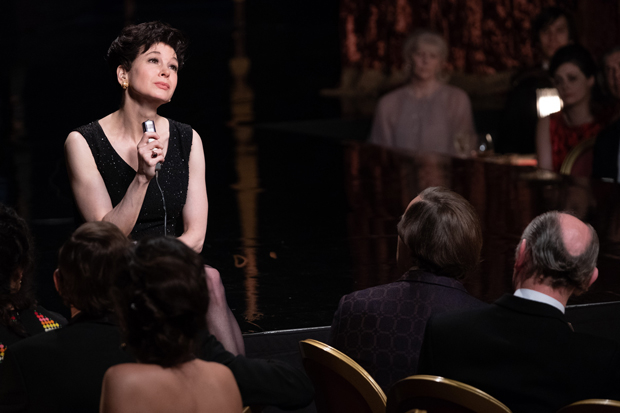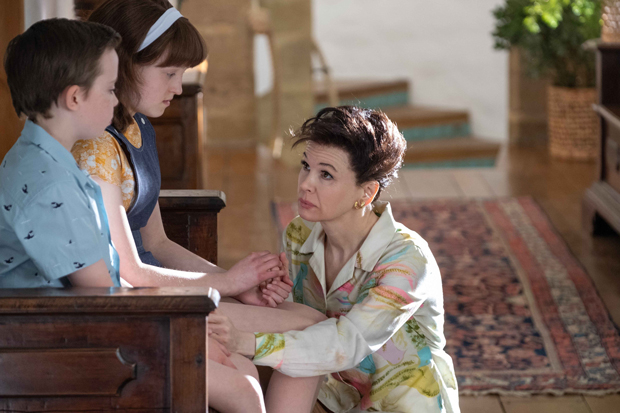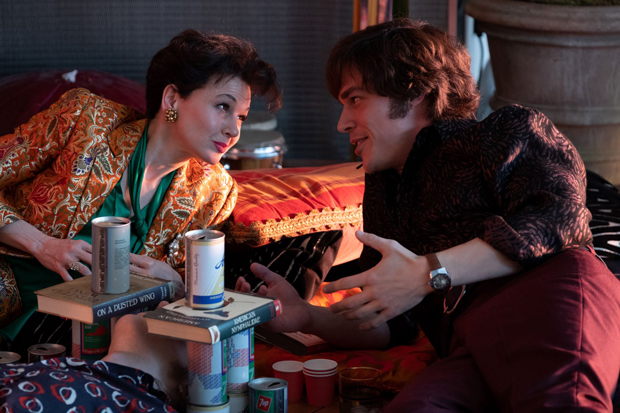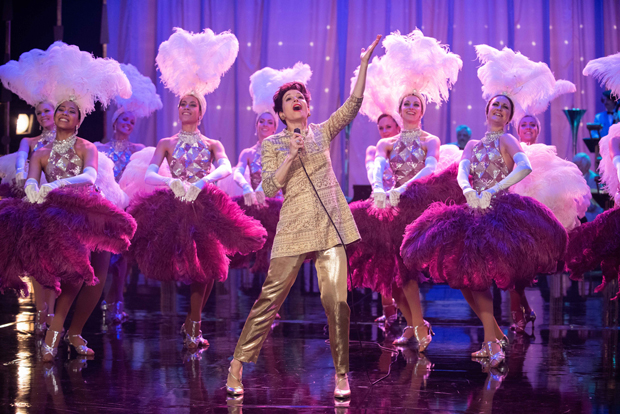Renée Zellweger Goes Over the Rainbow in New Biopic Judy
Rupert Goold directs this biographical film of the legendary Judy Garland, based on the play ”End of the Rainbow”.

(© David Hindley)
To answer the biggest question most viewers are bound to have about the new Judy Garland biopic Judy: Yes, Renée Zellweger is absolutely smashing as the legendary stage and screen star. She even does her own singing and dancing, and though her singing voice doesn't sound much like Garland's, the degree to which Zellweger inhabits the icon's alternately brassy and depressive spirit — down to the merest dismissive hand gesture and melancholy facial expression — is astonishing enough to send chills up one's spine.
It's a good thing that Zellweger is so compelling as Garland, because Judy is otherwise a fairly paint-by-numbers affair. Based on Peter Quilter's play End of the Rainbow (which was seen on Broadway in 2012), much of the film takes place in London in 1968 during a series of concerts at the Talk of the Town nightclub. It was a gig that Garland took out of desperation upon realizing she was about to lose custody of her children if she couldn't earn enough money to provide them a home.
But screenwriter Tom Edge also adds a handful of flashbacks to a much younger Garland (Darci Shaw) on the cusp of showbiz stardom, revealing some menacing encounters with MGM studio head Louis B. Mayer (Richard Cordery); the pills she was fed to help her sleep, stay awake, and lose weight; and her maybe-romance with fellow child star Mickey Rooney (Gus Barry).

(© David Hindley)
These flashbacks tantalizingly suggest some of the forces that led to Garland's fragile state in '68. Her distrust of most of the showbiz professionals around her makes sense, for instance, after we see how she was treated merely as a piece of Hollywood property early on in life. But while Judy occasionally intrigues as a psychological portrait, the insights into Garland's state of mind are not quite enough to override a somewhat distasteful sense of being invited to gawk at yet another doomed legend's slow-motion decline.
Acolytes of Garland will probably not learn much from Judy that they didn't already know, as all of her infamous erratic tendencies are portrayed: her onstage intoxication, her unpredictable mood swings, her irrational desire for love (represented here by her up-and-down relationship with her fifth husband, Mickey Deans, played by Finn Wittrock).
Still, give Edge and director Rupert Goold some credit for refusing to wallow in the miseries of Garland's life and choosing to emphasize the way she brought her hardscrabble experiences to her glorious art. If anything, Judy at times goes too far with the hero worship, especially with the introduction of a fictional couple, Stan (Daniel Cerqueira) and Dan (Andy Nyman), two British Garland superfans who stand in for the performer's sizable following in the gay community and are brought back in shamelessly contrived fashion for an artificially uplifting grand finale.

(© David Hindley)
But even when Edge gets too sentimental in his script, Goold (a veteran theater director whose last Broadway credit was Ink earlier this year) directs the film in a comparably understated fashion. He emphasizes naturalism in the dialogue scenes, only dialing up production designer Kave Quinn's immaculate period details and Jany Temime's delicious costuming in the musical sequences.
The film also features an excellent supporting cast, with Jessie Buckley in particular exuding the warmth and patience of a saint as Rosalyn Wilder, the assistant of Talk of the Town owner Bernard Delfont (Michael Gambon) tasked with trying to keep the volatile Garland in line.
Judy, however, is very much Renée Zellweger's show. Her performance is less interested in imitation than in capturing Garland's bruised yet defiant spirit, and she's so successful on that front that she makes Edge's uneven script play better than it is, binding the film's high and lows together by sheer force of passionate will. In real life, Garland demanded that she be heard come rain or come shine, and so too, in Judy, does Zellweger.

(© David Hindley)










